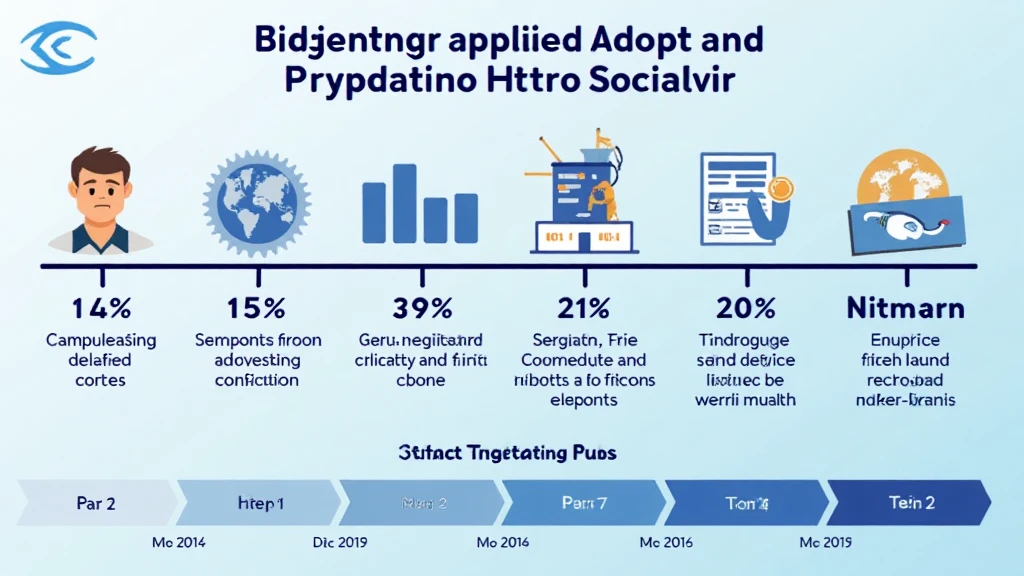Navigating Vietnam DAO Regulations: A Guide for Crypto Enthusiasts
As the cryptocurrency landscape evolves, so does the regulatory framework surrounding it. In recent years, Vietnam has become a focal point for innovation in decentralized autonomous organizations (DAOs). With approximately 15% of the Vietnamese population owning cryptocurrency as of 2023, the demand for clear regulations is more pressing than ever. In this guide, we’ll dive into the intricacies of Vietnam DAO regulations and what they mean for both individuals and businesses operating in the blockchain space.
Understanding DAO Regulations in Vietnam
The growth of DAOs calls for a regulatory response that balances innovation and consumer protection. In Vietnam, the current regulatory environment is characterized by a blend of progressive policy-making and cautious monitoring. This approach aims to foster a secure blockchain ecosystem without stifling innovation.
A Historical Overview of Vietnam’s Crypto Regulations
- In 2018, the State Bank of Vietnam declared cryptocurrencies illegal for payments.
- In early 2021, discussions began to form clearer guidelines regarding digital assets.
- The Ministry of Finance initiated consultations for a legal framework around cryptocurrency in 2023.
As we can see, the Vietnamese government has acknowledged the potential benefits of blockchains and DAOs, paving the way for a regulatory structure that encourages growth while ensuring security and compliance with local laws.

What are DAOs and Why are They Important?
DAOs, or Decentralized Autonomous Organizations, allow users to govern a project in a decentralized manner using smart contracts. These entities operate based on consensus mechanisms, enabling transparency and trust. Imagine a community-managed fund where every member has an equal vote; that’s the essence of a DAO.
The Role of Smart Contracts in DAOs
Smart contracts are the backbone of any DAO, automating processes and enforcing agreements without intermediaries. However, they are not without vulnerabilities. Here’s the catch: while DAOs can minimize risks associated with fraud, they can also fall victim to coding errors or exploitative hacking attempts. Therefore, understanding how to audit smart contracts is crucial for any organization engaging with DAOs.
Key Aspects of Current DAO Regulations in Vietnam
- Legal Recognition: As of 2025, DAOs are not legally recognized as entities, which complicates their operations.
- Tax Implications: Any income derived from DAOs may be subject to local tax laws.
- Compliance with AML/KYC: DAOs must comply with Anti-Money Laundering (AML) and Know Your Customer (KYC) regulations, affecting how they operate.
As Vietnam continues to refine its stance on DAOs, stakeholders must remain vigilant in adapting to these changing regulations.
Local Context: Growth of Cryptocurrency Adoption in Vietnam
Vietnam shows a vibrant crypto market, with 25% annual growth in the number of local crypto users from 2021 to 2023. This rapid uptake signals a growing interest in digital currencies, which in turn escalates the need for comprehensive regulations.
Potential for Future Regulations
Looking ahead, experts predict that the Vietnamese government may soon implement more structured regulations for DAOs, particularly focusing on areas such as:
- Consumer protection measures
- Clarity on taxation for crypto earnings
- Enhanced compliance requirements for DAO operations
Given the signs of positive momentum, it’s likely we’ll see more regulatory clarity within the next few years.
The Importance of Compliance: Insights for DAO Operators
Operating a DAO in Vietnam requires careful navigation through existing regulations. While the path forward can be complex, adhering to compliance measures will establish trust and credibility.
Tools for Enhancing Security and Compliance
- Invest in quality smart contract audits to ensure safety.
- Utilize reputable blockchain security tools like Ledger Nano X, significantly reducing the risk of hacks.
- Stay informed of updates in local regulations pertaining to DAOs and cryptocurrencies.
By opting for security and regulatory compliance, DAO operators can build a more reliable and resilient ecosystem.
Conclusion: The Future of DAO Regulations in Vietnam
As Vietnam continues to rewrite the rules of cryptocurrency governance, the importance of awareness and adherence to regulations can’t be overstated. Future DAOs must prepare for an evolving regulatory landscape that seeks to protect users while allowing innovation to flourish.
Engaging in the Vietnamese DAO space means complying with local regulations, conducting thorough audits, and promoting transparency. In doing so, DAOs can not only survive but thrive in the changing crypto environment.
For those looking to navigate these waters with confidence, platforms like cryptopaynetcoin offer reliable resources and tools to help you understand and comply with emerging regulations.
As we move toward the future of cryptocurrencies and blockchain technology, staying ahead of the curve is crucial.
Author: Dr. John Smith, a blockchain and regulatory expert with a decade’s experience in the crypto industry, has authored over 30 publications and led several prominent blockchain audits.


